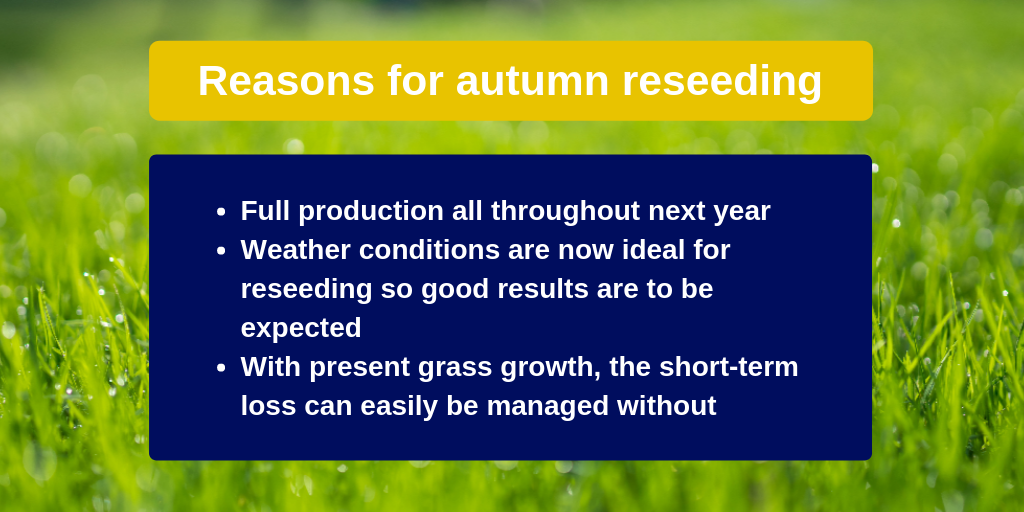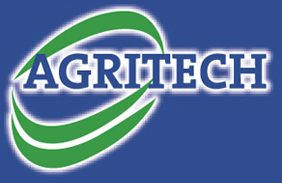Grass is still the easiest crop to grow in Ireland and gives substantial benefits year after year in Irish conditions, with yields of 20 tonne DM/ha possible. Knowing how this crop is performing on your farm is very important, as once performance starts to reduce, it is unlikely to recover without new seed being sown.
After the start of August, most farms have paddocks that grow less than 2 tonne DM/ha. If you want to drive production, these fields need to be improved, and reseeding is a big part of this process.
Reseeding in autumn will mean that fields will be in full production next spring, producing both quantity and quality grass. This is in contrast to old swards producing poor spring growth and poor quality feed.

At this stage, the key is to figure out which fields need attention most urgently and decide on the method that best fits your requirements. Plans need to be put in place and acted upon now as the quicker you start, the quicker you will have grass ready to graze.
Soil Fertility
Prior to reseeding, it is crucial to carry out soil tests for Phosphorus (P), Potassium (K) and pH, testing to a minimum of 10cm soil depth. Where soil fertility is at an optimum, it will require two to three bags of 10-10-20, plus 1 tonne of lime minimum, to provide enough P to feed the sward, kick start early growth, and allow the sward to reach its full potential.
Grass Seed Mixture
A grass sward containing 100% perennial ryegrass will grow up to 3 tonne DM/ha more than a sward containing 15% perennial ryegrass and it also produces a higher feed quality, thereby increasing animal performance, i.e. milk output and daily live-weight gain
Our Tipperary Grass Seed range has a mixture to suit every requirement. Every mixture is treated with a unique biological seed stimulant called, GroQuik®, which accelerates germination and especially root growth in both grasses and clover. This will help to produce more grass on the farm, thereby reducing the requirement on concentrate feed.
Post Management
All the benefits of reseeding can be lost after sowing if attention is not paid to weed and pest control. It is essential that post-emergence control of weeds such as docks and chickweed are carried out 4-6 weeks after emergence, when the grass is at the 2-3 leaf stage. High populations of weeds such as fat hen and redshank can be problematic also.
It is also essential to watch out for the three most significant pests of reseeds, Frit Fly, Leatherjackets and Slugs, and treat accordingly.
WATCH OUR TOP TIPS FOR ACHIEVING A SUCCESSFUL RESEED BELOW:
For further advice on autumn reseeding or to choose a suitable grass mixture from the Tipperary Grass Seed range, contact your local Agritech distributor or click here


